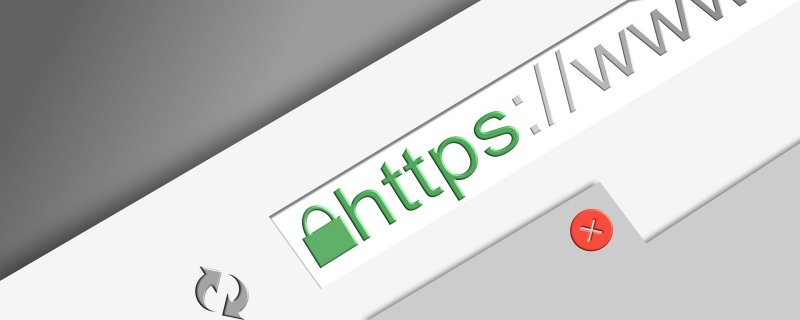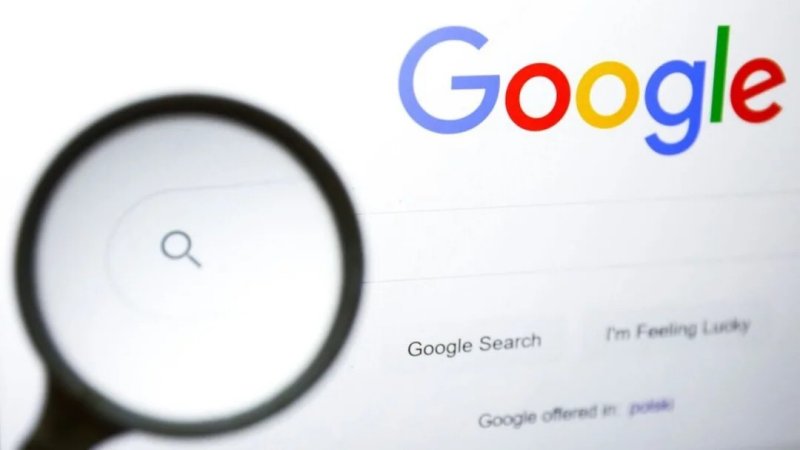
In the vast and ever-evolving landscape of the internet, the seemingly minor prefix in a website's address bar – http:// or https:// – holds profound implications. Far from being a mere technicality, this distinction fundamentally impacts user trust, data security, and, critically, a website's visibility and performance in search engine rankings. Once an optional enhancement, HTTPS has solidified its position as a baseline requirement for any website aiming to thrive online.
This article delves deep into the core differences between HTTP and HTTPS and, more importantly, unravels the intricate ways in which each protocol can either bolster or significantly hinder your Search Engine Optimization (SEO) efforts.
Unpacking the Protocols: HTTP vs. HTTPS
Before we explore the SEO ramifications, let's establish a clear understanding of what these protocols are and how they differ.
HTTP: The Unencrypted Foundation
HTTP, or Hypertext Transfer Protocol, is the foundational protocol for data communication on the World Wide Web. When you type http:// before a domain name, your browser communicates with the website's server using this plain-text protocol. It's like sending a postcard: anyone who intercepts it can read the message.
Key Characteristics of HTTP:
- Plain Text: Data is transmitted in an unencrypted, readable format.
- Vulnerable: Susceptible to eavesdropping, data modification, and identity theft.
- Port 80: Communicates over port 80 by default.
- No Authentication: Doesn't verify the identity of the server you're connecting to.
In its time, HTTP served its purpose well. However, with the exponential growth of online transactions, sensitive data exchanges, and personal information sharing, its inherent lack of security became a critical vulnerability.
HTTPS: The Secure Standard
HTTPS, or Hypertext Transfer Protocol Secure, is the secure version of HTTP. The crucial "S" stands for "Secure" and signifies that all communication between your browser and the website's server is encrypted. This encryption is facilitated by an SSL (Secure Sockets Layer) or, more commonly, a TLS (Transport Layer Security) certificate.
Imagine sending a message in a locked box, with only the recipient possessing the key. Even if intercepted, the contents remain unreadable.
Key Characteristics of HTTPS:
- Encryption: Uses SSL/TLS to encrypt data, making it unreadable to unauthorized parties.
- Data Integrity: Ensures that data is not altered or corrupted during transmission.
- Authentication: Verifies the identity of the server, preventing "man-in-the-middle" attacks.
- Port 443: Communicates over port 443 by default.
- Green Padlock/Secure Indicator: Browsers display a padlock icon, "Secure" text, or a green bar to indicate a secure connection, building user trust.
The SEO Nexus: How HTTPS Impacts Your Rankings and Beyond
The shift from HTTP to HTTPS is not merely a technical upgrade; it's a strategic move with multifaceted SEO benefits that influence everything from direct ranking signals to user experience and overall site performance.
1. The "Tiny" Ranking Signal: Google's Official Stance
In August 2014, Google officially announced that HTTPS would be used as a "lightweight" ranking signal. While Google clarified it was a minor factor compared to content quality or backlinks at the time, it was significant because it marked the first time a security measure was directly linked to search rankings.
Over the years, Google has continually emphasized the importance of security. While still not the heaviest ranking factor, in a highly competitive search landscape, every advantage counts. For two websites of similar quality, content, and authority, the one using HTTPS is likely to gain a slight edge. This signal contributes to Google's broader goal of making the web a safer place for users.
2. Trust, User Experience, and Conversion Rates
This is arguably the most impactful indirect SEO benefit of HTTPS. Modern browsers, especially Google Chrome, have become increasingly vocal about insecure connections.
- "Not Secure" Warnings: Chrome, Firefox, and other browsers prominently display "Not Secure" warnings for HTTP sites, particularly those collecting data (e.g., login credentials, payment information, or even just contact forms).
- Erosion of Trust: When users see these warnings, their trust in the website plummets. They are more likely to abandon the site, leading to higher bounce rates and missed conversions.
- Improved User Experience (UX): Conversely, the green padlock icon instills confidence. Users feel safer browsing, submitting information, and making purchases, leading to longer dwell times, lower bounce rates, and improved conversion rates – all positive signals to search engines.
Higher bounce rates and lower engagement metrics can indirectly signal to Google that users are not finding value or trust in your site, potentially harming your rankings over time.
3. Data Integrity and Privacy
HTTPS ensures the integrity of the data exchanged. This means that data sent from your website to a user, or vice versa, cannot be tampered with in transit. For e-commerce sites, financial institutions, or any website handling personal data (even simple contact forms), this is non-negotiable.
Beyond direct security, this aligns with global privacy regulations like GDPR (General Data Protection Regulation) and CCPA (California Consumer Privacy Act), which mandate robust data protection. A secure site demonstrates a commitment to user privacy, which builds a positive brand image and indirectly supports SEO by fostering user loyalty.
4. Accurate Referral Data in Analytics
When traffic passes from an HTTPS site to an HTTP site, the referrer data is often stripped, appearing as "direct traffic" in analytics platforms like Google Analytics. This makes it difficult to understand where your traffic is truly coming from, hindering marketing and SEO strategy.
However, when traffic flows from an HTTPS site to another HTTPS site, the referrer data is preserved. Migrating to HTTPS ensures that your analytics accurately reflect your traffic sources, providing invaluable insights for optimizing your SEO and marketing campaigns.
5. Enabling Modern Web Technologies
Many cutting-edge web technologies, which are increasingly important for a fast and dynamic user experience, require an HTTPS connection:
- HTTP/2: The successor to HTTP/1.1, HTTP/2 offers significant performance improvements (e.g., multiplexing, header compression) by delivering multiple requests over a single connection. While not strictly mandatory, almost all browsers only support HTTP/2 over TLS (i.e., HTTPS). Faster page load times are a well-known SEO ranking factor.
- Accelerated Mobile Pages (AMP): Google's AMP project, designed to create lightning-fast mobile pages, requires all content to be served over HTTPS. Given Google's mobile-first indexing, AMP can be a vital component of a mobile SEO strategy.
- Service Workers & Push Notifications: These powerful features, enabling offline capabilities and re-engagement strategies, also demand an HTTPS environment.
- Geolocation & WebRTC: Accessing user location data or enabling real-time communication features on your website requires HTTPS for security reasons.
Without HTTPS, your website is locked out of leveraging these technologies, potentially falling behind competitors who embrace modern web standards.
6. Avoiding Browser Warnings and Penalties
As mentioned, prominent "Not Secure" warnings are a direct disincentive for users. However, in extreme cases, browsers might even block access to HTTP sites, especially if they are deemed to be collecting sensitive information without encryption.
While not a direct "penalty" from Google's algorithm in the traditional sense, the practical effect of users being scared away or blocked from your site is a severe blow to traffic, engagement, and ultimately, your search performance.
Migrating from HTTP to HTTPS: A Practical SEO Lens
The shift from HTTP to HTTPS is more than just installing an SSL certificate; it requires careful planning to preserve your SEO equity.
- Obtain an SSL/TLS Certificate: Choose a Certificate Authority (CA) and purchase/obtain a suitable certificate (Domain Validated, Organization Validated, or Extended Validation). Many web hosts offer free SSL certificates (e.g., Let's Encrypt).
- Implement Server-Side Redirects: This is crucial. Set up 301 (permanent) redirects from all HTTP pages to their corresponding HTTPS versions. This tells search engines that your content has permanently moved, passing on link equity.
- Update Internal Links and Canonical Tags: Ensure all internal links within your website point to the HTTPS versions. Update canonical tags to reflect the HTTPS URLs.
- Update XML Sitemaps: Generate and submit a new XML sitemap with all HTTPS URLs to Google Search Console and Bing Webmaster Tools.
- Update Google Search Console: Add the HTTPS version of your site as a new property in Google Search Console. You'll switch your preferred domain to the HTTPS version.
- Monitor for Mixed Content: After migration, check for mixed content issues (when an HTTPS page loads unsecure HTTP resources like images, scripts, or CSS). This can negate the "secure" status and often results in a broken padlock icon.
- Update Analytics and Other Tools: Ensure your Google Analytics property settings are updated to reflect the HTTPS URL. Update any other third-party tools or integrations (e.g., ad tracking, CRM) that rely on your website's URL.
Conclusion
In today's digital age, HTTPS is no longer an option; it's a fundamental requirement for a credible, secure, and successful online presence. It directly contributes to SEO as a ranking signal, indirectly builds trust that improves user experience and conversion rates, enables modern web technologies, and ensures accurate data analysis.
Failing to transition to HTTPS not only puts your users at risk but also puts your website at a significant disadvantage in the competitive world of search engine rankings. For businesses and content creators alike, embracing HTTPS is not just good practice – it's an essential strategy for long-term SEO success. If your website is still operating on HTTP, the time to make the switch is now.







0 Comments
Post Comment
You will need to Login or Register to comment on this post!